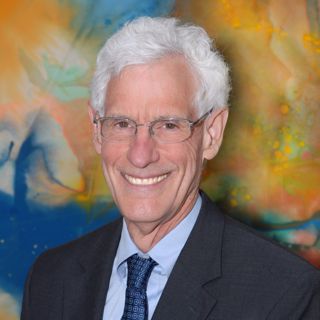
14 - Mark Thoma on Fiscal Policy, Econometrics, and Political Business Cycles
In this week’s episode, David speaks with Mark Thoma, professor of economics at the University of Oregon and author of the popular blog, “Economist’s View.” Mark discusses his journey into econometrics and the application of econometric techniques to macroeconomic and monetary issues. Looking back at the 2008 crisis, Mark makes the case that fiscal stimulus should have been much stronger. He and David also discuss the role of monetary policy and financial regulation during this time. Finally, Thoma also explains some of his work on political business cycles: instances where politicians affect policy to increase the likelihood of being reelected. David’s blog: http://macromarketmusings.blogspot.com/ Mark Thoma’s blog: http://economistsview.typepad.com/ David’s Twitter: @DavidBeckworth Mark Thoma’s Twitter: @MarkThoma Related links Mark Thoma’s Webpage: http://pages.uoregon.edu/mthoma/ Mark Thoma’s CBS archive: http://www.cbsnews.com/search/author/mark-thoma/ Mark Thoma’s Fiscal Times archive: http://www.thefiscaltimes.com/Authors/T/Mark-Thoma David’s first blog post: http://macromarketmusings.blogspot.com/2007/08/liquidityholics-of-world.html Timestamps (00:00:00) - Intro (00:00:21) - Episode start (01:00:19) - Outro
11 Heinä 20161h

13 - Joseph Gagnon on Quantitative Easing in the United States and Abroad
As a Federal Reserve official, Joseph Gagnon played a critical role in providing the intellectual justification for the Fed’s quantitative easing (QE) programs. Now a senior fellow at the Peterson Institute for International Economics, Joe joins the show to discuss the events leading up to the decision to implement QE and its consequences. He and David also discuss how the Fed’s QE compares and contrasts with the QE implemented by the Bank of Japan and the European Central Bank. Finally, Joe shares some of his thoughts on Brexit’s wider implications. David’s blog: http://macromarketmusings.blogspot.com/ Joseph Gagnon’s biography: https://piie.com/experts/senior-research-staff/joseph-e-gagnon David’s Twitter: @DavidBeckworth Joseph Gagnon’s Twitter: @GagnonMacro Note: this recording was taped before the Brexit vote on June 23. Related Links “Large-Scale Asset Purchases by the Federal Reserve: Did They Work?” https://www.newyorkfed.org/medialibrary/media/research/staff_reports/sr441.pdf “Quantitative Easing: An Underappreciated Success” https://piie.com/system/files/documents/pb16-4.pdf
4 Heinä 201656min

11 - Robert Hetzel on Milton Friedman, the Monetarist-Keynesian Debate, and the 2008 Crisis
Robert Hetzel is a senior economist and research advisor at the Richmond Federal Reserve Bank where he has worked since 1975. He joins the show to discuss the rise of monetarism and how Milton Friedman, his dissertation advisor, shaped his thinking on macroeconomics. Monetarism challenged the conventional Keynesian consensus in the 1970s and caused Keynesians to reformulate their views into a new doctrine called, “New Keynesianism.” However, in the wake of the Great Recession, “Old Keynesianism” has made a comeback. Hetzel pushes back against the Keynesian resurgence and explores other explanations of the 2008 crisis. David's blog: http://macromarketmusings.blogspot.com/ David's Twitter: https://twitter.com/DavidBeckworth Robert Hetzel's biography: https://www.richmondfed.org/research/economists/bios/hetzel_bio Related links: https://www.richmondfed.org/~/media/richmondfedorg/publications/research/economic_quarterly/2012/q2/pdf/hetzel.pdf https://www.richmondfed.org/~/media/richmondfedorg/publications/research/economic_quarterly/2009/spring/pdf/hetzel2.pdf https://www.amazon.com/Program-Monetary-Stability-Milton-Friedman/dp/0823203719
20 Kesä 201654min

10 - Lars Christensen on the Eurozone Crisis and International Monetary Policy
Lars Christensen, an internationally renowned Danish economist and Senior Fellow at London’s Adam Smith Institute, discusses the poor monetary policy that has plagued the Eurozone. Christensen, the coiner of the term “market monetarism,” argues that Europe from the beginning was not an optimal region for its members to share a single currency and that the European Central Bank’s decisions have greatly worsened the Eurozone’s economic pain. This suffering, consequently, has led to the rise of extremist movements throughout the region. Lars and David also turn their conversation to the lesser-known “dollar bloc,” the group of countries that either use the U.S. dollar or peg their currencies to the dollar. David's blog: macromarketmusings.blogspot.com Lars Christensen’s blog: https://marketmonetarist.com David’s Twitter: https://twitter.com/DavidBeckworth Lars Christensen’s Twitter: https://twitter.com/MaMoMVPY
13 Kesä 201657min

09 - Josh Hendrickson on Measuring Money in the Economy
Josh Hendrickson, assistant professor of economics at the University of Mississippi, joins the show to discuss whether money matters anymore. It may come as a surprise to the layman, but most monetary economists don’t pay close attention to the money supply. Instead, they prefer to look at economic slack, inflation, and interest rates when considering monetary policy. Hendrickson pushes back against this view by making the case that money does still matter both theoretically and empirically. He shows how new modeling approaches and better money measurements point to an important role for money. The run on the shadow banking system during the crisis and the subsequent collapse in its money supply are used to illustrate these points. Finally, Josh and host David Beckworth discuss the importance of Twitter and blogging in building a professional brand. David's blog: macromarketmusings.blogspot.com Josh Hendrickson’s blog: https://everydayecon.wordpress.com/ David’s Twitter: https://twitter.com/DavidBeckworth Josh Hendrickson’s Twitter: https://twitter.com/RebelEconProf Links from today’s show: http://www.amazon.com/Optimum-Quantity-Money-Other-Essays/dp/0202060306 http://economics.olemiss.edu/files/2013/05/Mismeasurement5b.pdf http://www.centerforfinancialstability.org/getting_wrong.php
6 Kesä 201658min

08 - Greg Ip on Risks, Financial Disasters, and Helicopter Money
Can trying to be safe actually be dangerous? Greg Ip, chief economics commentator of the Wall Street Journal, says yes in his new book, Foolproof: How Safety Can be Dangerous and How Danger Makes Us Safe. When we try to be too safe, we become complacent. Ip argues that the stability of the ‘80s and ‘90s made us take risks that culminated in the 2008 disaster. Being too safe can also explain non-economic problems such as forest fires and football injuries. Ip also shares his thoughts on Fed policy and the possibility of a “helicopter drop” of money. David’s blog: http://macromarketmusings.blogspot.com/ David’s Twitter: https://twitter.com/DavidBeckworth Greg Ip’s WSJ archive: http://www.wsj.com/news/author/8223 Greg Ip’s Twitter: https://twitter.com/greg_ip Links from today's show http://www.amazon.com/Foolproof-Safety-Dangerous-Danger-Makes/dp/0316286044 http://www.amazon.com/Little-Book-Economics-Economy-Profits/dp/0470621664 http://blogs.wsj.com/economics/ http://blogs.wsj.com/economics/2016/03/21/the-time-and-place-for-helicopter-money/
30 Touko 201657min

07 - George Selgin on the Productivity Norm, Deflation, and Monetary History
George Selgin, director of the Cato Institute’s Center for Monetary and Financial Alternatives, makes the case that central banks, rather than focusing on the price level or inflation rate, should instead allow inflation to reflect changes in productivity growth. According to this productivity norm, deflation can actually be a good thing if it reflects improved productivity. Selgin examines the Great Deflation of the late 1800s and dispels some of the popular myths surrounding that period. He also discusses what the Fed got wrong in the lead-up to the recent financial crisis. David’s blog: http://macromarketmusings.blogspot.com/ David’s Twitter: https://twitter.com/DavidBeckworth Georg Selgin’s Cato archive: http://www.cato.org/people/george-selgin George Selgin’s Twitter: https://twitter.com/georgeselgin Links from today’s show: http://www.iea.org.uk/sites/default/files/publications/files/upldbook98pdf.pdf https://www.minneapolisfed.org/research/sr/sr331.pdf http://voxeu.org/article/historical-look-deflation http://hope.dukejournals.org/content/27/4/705.full.pdf+html (subscription required)
23 Touko 20161h 1min






















